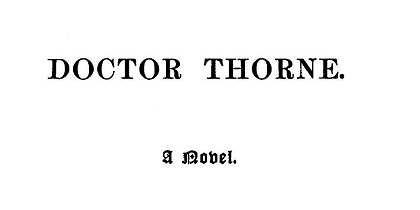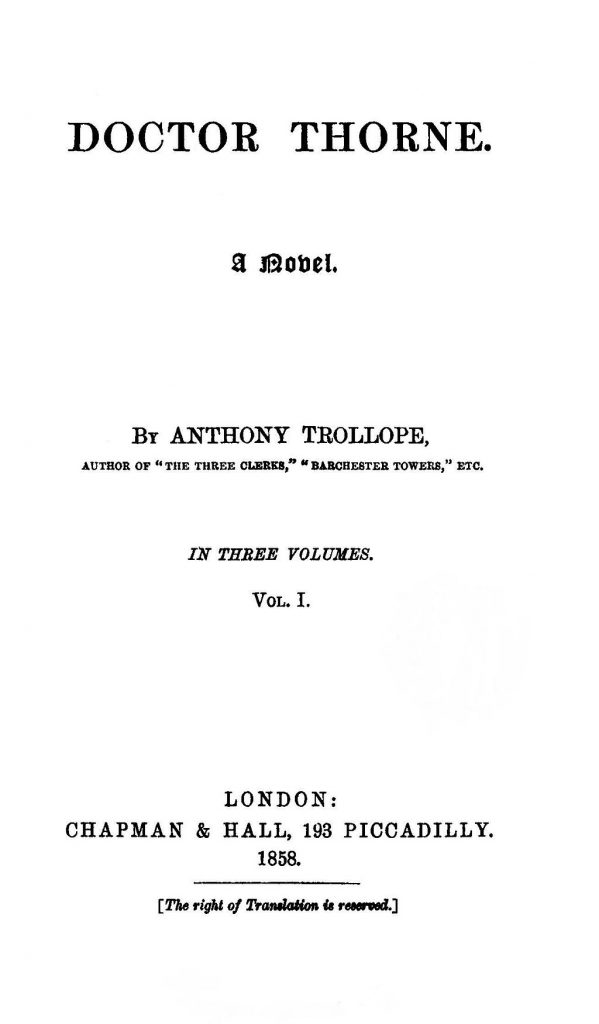
February 13, 2019, by Sunita Tailor
Doctor Thorne
This blog was written by final year English student, Jade Braham.
- Author: Anthony Trollope
- Published: 1858
- Rating: 4/5
Having seen the ITV’s mini-series of Anthony Trollope’s Doctor Thorne I was inspired to read his novel. Published in 1858, it is the third novel in Trollope’s series known as the Chronicles of Barsetshire. The principal story starts with Frank Gresham’s coming of age party (he is the eldest and only Gresham son). Foolishly, he announces his love to Mary and proposes. This has negative consequences as he is sent by his family to meet Miss Dunstable, a wealthy heiress, whilst Mary is banished and isolated from the Gresham’s household. Throughout the novel we follow the trying tribulations of these two young lovers and the political corruption and gender inequality that not only prevents love from conquering all but demonstrates how such issues are troublingly still relevant to today.
The most striking and interesting element of the novel is its exploration into political, and probably not so surprising, masculine power. Politics and the voting system are at the heart of this story and instead of Trollope’s novel being a form of escapism it seems to reinforce the idea that as a civilisation and as a country we have failed to improve and progress from the abuses of political power that control and dominate the way society and its inhabitants live. This can be seen in its parallelisms to wire-tapping, allegations of voter fraud, claims that the British electorate was misled and accusations about the misuse of public funds against candidates. Such allegations have had an effect on our lives today and it certainly governed how individuals perceived each other in the novel. In addition, this political corruption heightened the male patriarchal values that not only limit women but foreground how lower classes and destitute aristocratic families were sadly at the mercy (or lack of) of those in government.
Furthermore, the novel provides a harsh truth about the brutal conditions for women. There was neither opportunity for expressions of thought nor any chance to speak out against male domination. Women were considered inferior, were expected to be submissive and passive and were defined and referred to through their husband’s social standing. Interestingly then, this novel details through the main love story how women were often brutally treated with little hope of help from their male counterparts. Sound familiar?
If you’re looking for something educational and thought-provoking then this novel is for you!
No comments yet, fill out a comment to be the first


Leave a Reply